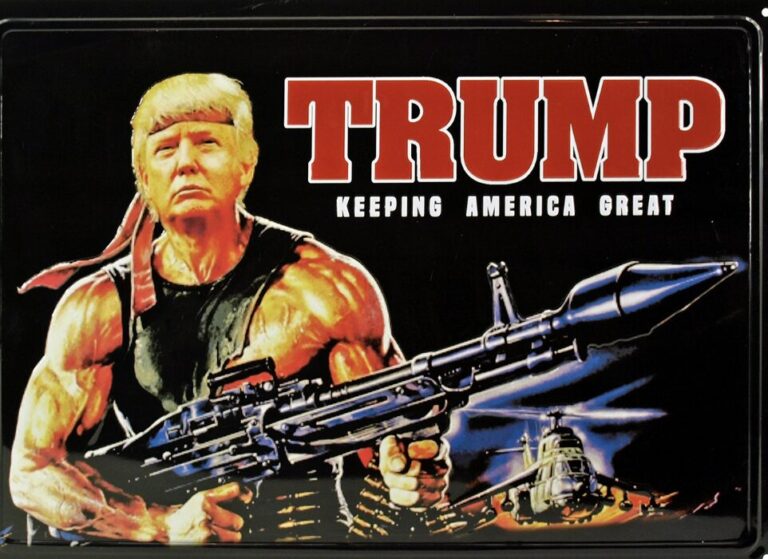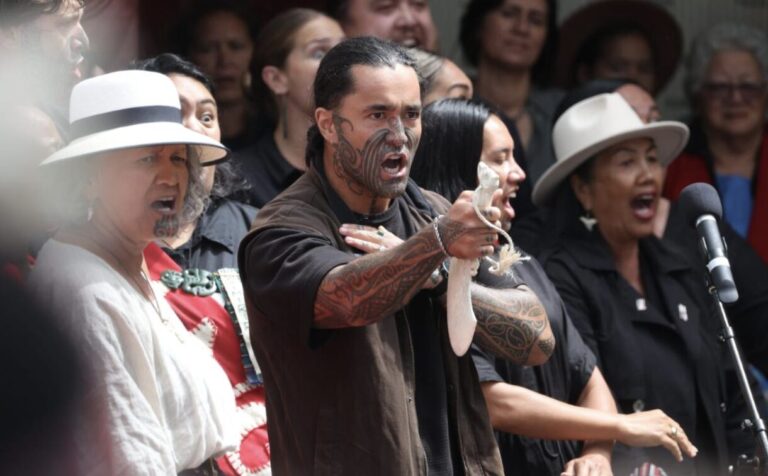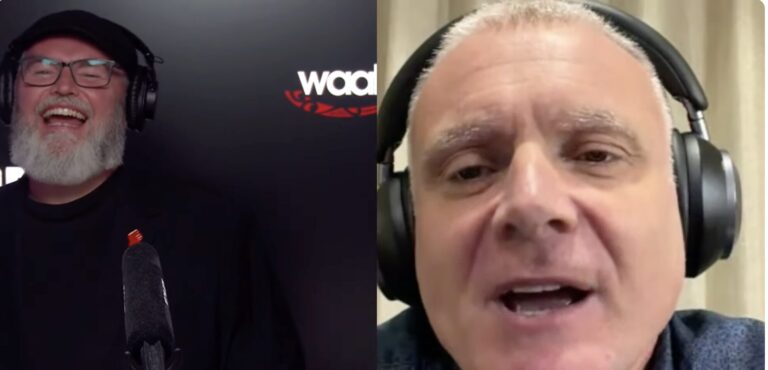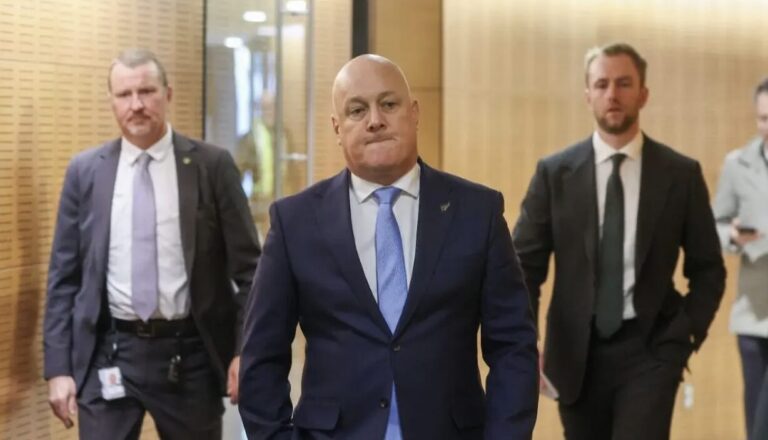A Grand Coalition For Peace, Unity and Democracy.
THOSE RESPONSIBLE for New Zealand’s national security face problems considerably greater than anti-vaxxers issuing bomb-threats. (Although with an anti-vaxxer currently being held in what sounds suspiciously like preventative detention, on a charge of sabotage, perhaps they’re mistaken!) Over the next 12 months, the NZ Defence Force, the Police, and the SIS – The Forces of Order – will have to decide which group of potential insurrectionists they have the best chance of beating: White Supremacists or Māori Nationalists?
These two extremist tendencies, both of them hostile to democracy, currently stand outside the arena of practical politics. For them to remain there, however, a political environment supportive of traditional democratic principles and, most crucially, supported by all of the key state institutions, will have to be actively promoted. Not only that, but an emphatic majority of citizens will have to believe the such official promotion is sincere, and that it will not simply evaporate if ordered to do so by radical political actors.
This is a predicament without precedent in New Zealand history. At no point in the 170-year history of responsible government in these islands has the forced introduction of fundamental constitutional change turned on the outcome of an election. Radical changes have been made in the past, but always within the parameters of parliamentary democracy and the rule of law. It is one of the great strengths of our Westminster system of government: that change is always reversible. What’s done can be undone – if the people will it.
If, however, the next general election produces a Labour-Green-Te Pāti Māori coalition government, then fundamental constitutional changes, of the sort recommended in the He Puapua Report, will be introduced. This can be stated with confidence for the very simple reason that an unwavering tripartite commitment to the “decolonisation” and “indigenisation” of Aotearoa’s governing arrangements would be a precondition for any such coalition’s formation. The Māori Caucus of the Labour Party would demand it. The Greens would expect it. And the support of Te Pāti Māori (TPM) could not be contemplated without it.
These constitutional commitments could not be kept hidden from the electorate. Their necessity would be loudly proclaimed in the run-up to the election by TPM as a means of mobilising Māori voters generally, and energising young Māori voters in particular. TPM’s most obvious electoral strategy would be seek all seven Māori seats, while freeing their supporters to cast a Party Vote for Labour by way of compensation. Should TPM win all seven seats, but fail to win a commensurate share of the Party Vote, then the next Parliament would have an “overhang” of Left seats – making it even more difficult for the Right to secure a majority.
Would Labour consent to TPM’s strategy? Almost certainly. On the issues of decolonisation and indigenisation the Labour Party Caucus has demonstrated a firmness of purpose not seen since its predecessor’s embrace of “Rogernomics” back in the 1980s. It was not unusual in the late-80s to hear Labour MPs declare that they would rather lose their seat than reverse their support for Roger Douglas’s radical economic reforms. Faced with the option of repudiating the Treaty “partnership”, and the co-governance measures they believe it mandates, this present Labour Caucus (with a handful of exceptions) would almost certainly evince a similar determination to win through or leave Parliament altogether.
Such a coalescence of the Left around te Tiriti and co-governance would, naturally, generate and equal and opposite reaction from the Right. Any notion the National Party may have entertained of attempting to ride the Treaty-and-Co-Governance tiger would have to be jettisoned hastily. Christopher Luxon would have no choice but to embrace Act’s maximalist anti-separatist/pro-democracy policies as his own. David Seymour’s plans for legislatively defining the meaning of the Treaty, and having the resulting law either ratified or rejected by referendum, would thus be presented as the rock-solid commitment of the National-Act coalition government-in-waiting.
Faced with the possibility of losing every centimetre of ground they had won since 1985, Māori nationalists would make no bones about the consequences of a National-Act Government. The re-colonisation of Aotearoa would be resisted – by any means necessary.
Not to be outdone, White Supremacist groups would make it clear that any attempt to “re-tribalise” New Zealand society, by stripping its citizens of their democratic rights and property, would be met with armed resistance.
How would the Forces of Order respond to such threats? Their first move would likely be against the most ardent promoters of the decolonisation and indigenisation agenda. Senior public servants, vice-chancellors and media editors would be “invited” to moderate their radical stance on the politics of partnership. With “radicalisation” occurring apace among the activists of both camps, the Forces of Order’s top priority would be to “depressurize” the increasingly tense political atmosphere.
At the same time “the usual suspects” of the activist Right and Left would be made the subjects of heightened surveillance. All forms of intelligence gathering would be utilised in an attempt to keep abreast of the White Supremacists’ and Māori Nationalists’ activities. From the perspective of the Forces of Order, the best outcome of such a surveillance programme would be the uncovering of plans by both sides to launch a series of attacks on their opponents – up to and including the assassination of the Prime Minister and the Leader of the Opposition.
In these circumstances, the Forces of Order would be presented with the opportunity to persuade the leaders of the Centre-Left and the Centre-Right to dispense with their respective coalition partners and announce their intention to go into the election as a Grand Coalition for Peace, Unity and Democracy. The urgent necessity for such a dramatic solution could be demonstrated by a few suitably terrifying leaks to the most co-operative media outlets. Poll data, real or concocted, would indicate the public’s overwhelming support for the Grand Coalition. Dissenting MPs from Labour and National could then be purged ruthlessly from their Party Lists. At the electorate level, the candidate from the party assessed as most likely to win would be given a clear run by their coalition partner.
With the Grand Coalition parties promising to respect both the Treaty and New Zealand’s democratic traditions, while spending billions to “close the gaps” between Māori and Pakeha, the political prospects for Act, the Greens and Te Pāti Māori would take a decided turn for the worse.
The Forces of Order would breathe a massive sigh of relief. Principally because the question originally posed: who could they beat? – is a trick question. The uncomfortable truth is: not the Army, not the Police, not the Spooks, and not even a combination of all three, could defeat the scale and violence of White Supremacist and Māori Nationalist resistance which the imposition of radical decolonisation – or its racism-inspired defeat – would unleash upon the country. An uncompromising government pursuit of one or the other would simply topple the nation into a bloody civil war.
And who would win that conflict? The answer, almost certainly, is – The Australians. Canberra could not afford to have a failed state on its eastern flank – ripe for the picking by a Chinese regime only too happy to sail to the rescue of whichever side seemed most likely to prevail. The Aussies’ pre-emptive intervention would see Aotearoa-New Zealand become the eighth state of the Commonwealth of Australia.
We would all have lost.






The chance to fight an insurrection against Australian filth? Don’t threaten me with a good time
It is unacceptable that the guy in prison on suspicion of sabotage will not have his trial until at least the end of 2023. If he is found innocent, I would value his compensation for loss of freedom at over 2 million dollars.
What’s he allegedly sabotaged? Ageing 3 waters infrastructure? Sabotaging our rivers with dairy effluent? Sabotaging progress on social housing developments? Sabotaging our health system so people can’t access healthcare? Sabotaging our population with a virus?
Justice delayed is justice denied.
I was wondering if it was 5G masts because the charges mentioned something about trespass on a rural property and some anti vaxxers are 5G conspiracists as well. Clearly he has p’d off the government and like the anti mandate folks, she who must be obeyed will make sure he suffers. (Anti vax Midwifes still unable to practice)
I agree about justice denied and have huge questions about an archaic law being dredged up? Was there nothing else or was it the juicy maximum sentences that made them choose it? He’s currently looking at up to around 70 years maximum. Contrast this with recent gang members minute convictions (the guy with 16 kids) and ask yourself if this is a kind and fair govt or a purely and excessively political one.
And if Australia had already fallen to the Chinese? The losing would just be more painful, I guess. What fun!
…. a political environment supportive of traditional democratic principles and, most crucially, supported by all of the key state institutions, will have to be actively promoted.
First up, the problem is that we need to become a democracy, not an oligarchy. That’s a revolutionary position.
Second the organs of state are captured by the oligarchy, they will need to be liberated.
And what group does the Churches /evangelist fit into? Also Maori nationalist don’t go around shooting 50 odd people in he back while they are praying in their place of worship white supremacist do so who is the lesser evil.
“Labour MPs declare that they would rather lose their seat than reverse their support for Roger Douglas’s radical economic reforms” It would seem that forming a grand coalition with National would be easy for them, surprised they havent done it already.
Given how unpopular the Australian state, banks, and so on are with NZers, I think nothing could inflame the situation more than some kind of Aussie takeover, although on second thoughts it might solve the Ao/NZ-in-OZ citizenship conundrum. Still, what would the Australian intervention to restore the Commonwealth be called? Better not call it Operation Banner: https://en.wikipedia.org/wiki/Operation_Banner.
A bit far fetched Chris but not ultimately beyond the bounds.
And who do we have for this current state of affairs? From a NZ that was finally heading towards a more accepting, integrated society to this? Ms Ardern, historians will not be kind to you.
Maybe time for a rerun/remake of the book Smiths Dream and the movie Sleeping Dogs!
Don’t know if Ian Mune or Sam Neil will be interested again in the main roles ?
Becoming a state of Australia might in the long run be inevitable – if the south island had any sense they would seek to be one tomorrow !
It’s an interesting argument although I do think positioning those in our society who believe in universal suffrage is best represented by one person, one vote as White Supremacist is a touch hyperbolic.
I accept that there may well be some White Supremacists in New Zealand however I’m not sure that even if all 3 of them came together they’d be able to lead an insurrection. Hell, I doubt they’d even be able tie their shoelaces without help.
Tbh becoming the 8th state of the Commonwealth of Australia wouldn’t be the worst thing. If the rest of the world is going to heat up the planet we may as well capture some of the benefits.
Well there is no comparison between the radical Maori nationalists and the radical white supremacists.
Maori nationalists are fighters for national self-determination, while the white supremacists are the backbone of a fascist movement.
Maori self-determination means what it says, autonomy in their own land stolen by the white settlers up to an including secession. It is one of the fundamental democratic rights off all peoples on the basis of their land, language and culture.
How far Maori radicalism will go towards secession will depend on the amount of support for their rights the get from non-Maori. With majority support they will probably stop short of secession because assimilation has made that very messy and probably counter-productive.
I think that the bloc Maori plus supporters will be the big majority, and politically progressive since it is redressing a non-democratic colonial history of oppression in the face of the terminal crisis of global capitalism which is ramping up the oppression of the poor and non-white globally measured in collapsing living standards, victims of pandemics and of authoritarian rule.
That leaves the minority white supremacist-led fascists made up of middle class, small businesses, ‘kith and kin’, plus lumpen workers who may act as a violent movement to defend their class interests from the perceive threat of Maori radicalism.
The state forces particularly the police and military will probably split between Left and Right. So the balance of these forces may be decided in the end by the number of state and military personnel who side with one or other side.
A split will probably have a majority siding with the democracy of Maori self-determination in which case it will probably show an extreme moderation become the current racist tokenism.
When co-determination is already being practiced routinely over rivers and local matters for example, its not too hard to envisage a relatively peaceful, united and much more democratic outcome than prevails today.
The argument is often raised that the class differences among Maori disqualify Maori self-determination since the ‘capitalist’ leaders dictate the will of Maori as a people. That claim is based on a racist neocolonial mentality which condemns the majority of Maori as dupes of their ‘leaders’.
Tinorangatiratanga in pre-colonial Maori society was exercised in the interests of the collective and not the ‘leaders’. Today this practice can become the model for a new form of democracy that unites all races and classes.
After all who can claim that the ‘democracy’ of the twin parties of Kiwi capitalism with all of its destructive neocolonial greed and parasitism serving the interests of rival imperialist powers is worth the paper we put in the ballot box?
Well, Dave, if you’re right, then we would expect to see tens-of-thousands of Pakeha refugees fleeing to the South Island. The latter, wary of your dauntless Maori legions promising “a new form of democracy”, would doubtless declare its independence and immediately seek the protection of the Australians.
That would leave only Te Ika A Maui to the new revolutionary order. Stripped of 90 percent of its professionals and managers, and most of its skilled workers, what remained of New Zealand’s – now Aotearoa’s – population would be left to their own devices. (Which, if the Aussies cut the electric power and Internet cables, would very soon cease to function.)
Not a prospect many Kiwis would welcome but – nil desperandum! – at least tino rangatiratanga would be given a fair chance to prove itself.
You may be close to the truth there Chris! I’ve already seen comments in social media where people are saying they’re moving to the South Island to remove themselves from festering crime ridden towns in the north island.
Take a look at what’s been happening in the UK for over a decade: At the last count over 600,000 white English people abandoned London for the south coast and Home Counties and the capital is now majority non white. There is a similar move happening in other large UK cities: Birmingham and Manchester in particular. Friends who have made this move say they moved to get their kids away from the gang warfare, drugs and frequent stabbings in schools.
You’re dreaming!!!
Dave Brown: “Maori nationalists are fighters for national self-determination, while the white supremacists are the backbone of a fascist movement.”
White supremacists? In NZ? I doubt that their numbers here are sufficient to even attract notice. A while back, I recall seeing a report to Parliament from the security services which implied that numbers of such people here are so low that said services knew them all by name. Another commenter on this thread refers to “all 3 of them”. Heh! About sums it up, I think.
Ethno-nationalism is an aspect of fascism: it’s not in any way dependent upon skin colour. It would be recognised as such by you-know-who, whose name I won’t invoke, lest I be accused of going Godwin.
For those of us old enough to remember, what’s been said here in recent times is reminiscent of Robert Mugabe and Idi Amin. And we all know how badly those situations turned out for all concerned.
“Maori self-determination means what it says, autonomy in their own land stolen by the white settlers up to an including secession. ”
Maori self-determination? How would they propose to figure out who is Maori? Given the long history of intermarriage in NZ, are they intending to use the “one-drop” rule?
https://en.m.wikipedia.org/wiki/One-drop_rule#:~:text=The%20one%2Ddrop%20rule%20is,or%20colored%20in%20historical%20terms).
Land stolen by white settlers? In the first instance, nobody now alive has stolen land from anybody. None of us is responsible for the actions of our – or, in my case, other people’s – ancestors. Moreover, from the very beginning of European contact, there have been people here from all over the world, not all of them white, as the ancestry of many NZers can attest. The theft of land from each other by tribes – some of it happening after first European contact – isn’t even mentioned in your comment. Yet it was significant.
“…redressing a non-democratic colonial history of oppression….”
Oh nonsense! This country has been a democracy and self-governing since the 1850s. The indigenes had political rights very early on: the Maori seats were established in 1867. Maori women got the vote at the same time as Pakeha women. In fact, they got it earlier, provided that they met the property-holding qualification.
“….and much more democratic outcome than prevails today.”
What? This is a modern, representative democracy, open to all comers. One person, one vote. That’s the only way this country can survive. Although in the proper definition of the term, the Maori electoral system is racist: apartheid, as those of us who campaigned against it in South Africa know only too well.
“Tinorangatiratanga in pre-colonial Maori society was exercised in the interests of the collective and not the ‘leaders’.”
No. It wasn’t. In the last few years and as part of an academic project, a relative undertook research into the documented oral histories of pre-European Maori habitation and conflict. Prior to first European contact, NZ wasn’t a bucolic paradise: it was Hobbesian. Tribes were ruled by hereditary elites; slavery was the norm. Inter-tribal conflict was frequent and violent, cannibalism routinely practised. The Treaty saved many ordinary Maori from a truly awful life. And early – and frequently violent – death.
“Today this practice can become the model for a new form of democracy that unites all races and classes.”
Good luck with that. Based on history, I wouldn’t be nearly so sanguine about it.
A collection of subtribes that form a tribe can not form a National Identity. The outlines of those Iwi Maori was settled by the treaty.
The government know full well that ethnic separatism widely and deeply loathed, hence the rejection of a democratic solution, along the lines proposed by ACT. It’s obvious in the sleazy way the proposed changes were kept from the people at the last election.
The only reasonable choice is to put it to the people, unsettling as it might be, the alternative is far worse.
The saying all New Zealanders is so cringe. One percenters are not like all New Zealanders. Not even close. You can’t Act like you’re one of us all the way from Hawaii.
I just refuse to allow this opportunity to debate once in a generation reform into a circular firing squad.
All I’m saying is that The Treaty partnership has to be taught the shape of New Zealand through personalised experience’s.
The Treaty also gives The Government authority to build high performance military platforms like an Air Combat force and battleships. While your building out one part of the treaty that ain’t there. Don’t it all.
I’ve always thought that my Ancestors who refused to sign the Treaty thought of the treaty as an immigration tool rather than a means for controlling water infrastructure. They thought that there was plenty of resources to go around, still do.
If somehow you love this little country then join us in this attempted equitable distribution of kiwi resources 🙂
If wai rua (I just prefer the tone of wai rua, 3 waters sounds boring) is to be equitable then everyone is going to have to be a stakeholder under the treaty.
Pai Cory Chris Trotter you do have quite a mind don’t you?
So next election could be a good one to lose. You pose some very interesting scenarios.